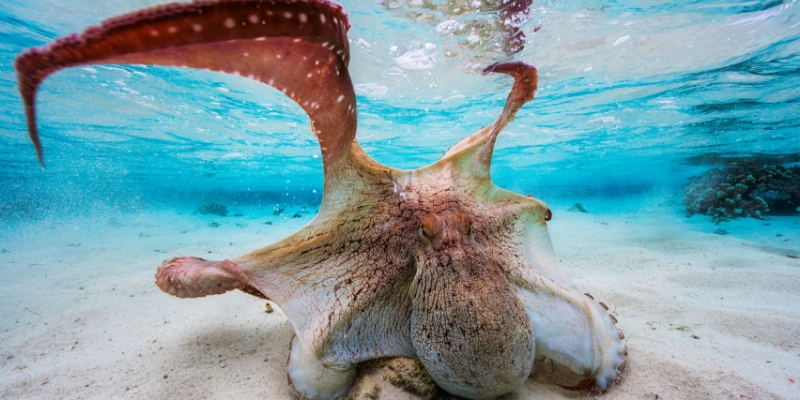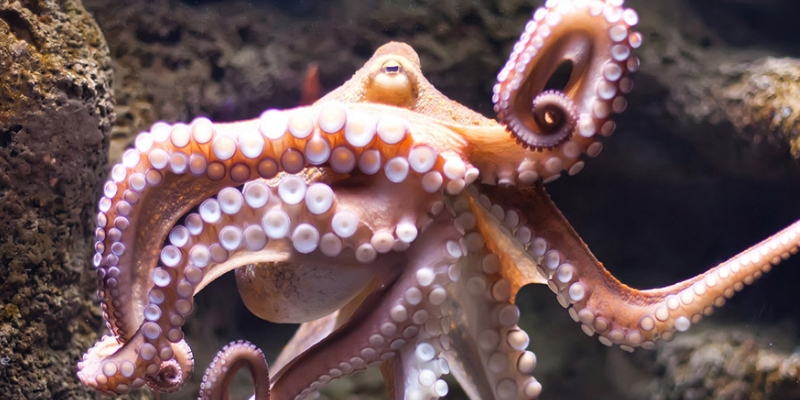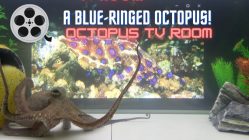There is a misconception among those who like octopuses that they live for a longer period of time than they actually do.
Sadly, especially for those who have octopi as pets, some of these smart and amazing creatures have a life span that is comparable or shorter than that of a hamster. There are approximately 250 different species of octopi throughout the world’s oceans. Some of these are categorized as “common octopi” — those which you will be more likely to find in a pet store. These common octopuses have lifespans that range from a few months to two years.
You may have read about octopuses which live as long as five years. Yes, there are a few species, such as the Giant Pacific Octopus, which can live that long. However, for the most part, octopuses are rebels who enjoy life and die young — they are the James Deans of mollusks.
Why Is This?
The lifespan of an octopus is dictated primarily by its reproductive cycle. A female octopus will only reproduce once in her lifetime and males will usually die within weeks or months of breeding. In other words, sex and procreation usher in the death march for octopi.
The optic gland of an octopus controls the hormones that lead to sexual maturity and which initiate the breeding cycle. Experiments have been conducted in which octopi had their optic gland removed. In some, this extended their lifespan.
Having their sexual organs removed instead of the optic gland— a rough equivalent to having your dog or cat “fixed” — does not appear to lengthen an octopus’ life. This is because even though they would not be able to produce offspring, the optic gland is still going to release the sexual maturation hormones. It is these hormones that not only make the octopi reproductively mature but which also cause their digestive glands and other organs to stop functioning. As ghastly as it sounds, when an octopus mates its sexual hormones will cause its body to slowly shut down. They will not be able to process food and nutrients. Eventually, they die from a form of starvation.

Other studies have been conducted to determine what triggers the optic gland to start releasing the hormones for sexual maturation — in other words, what triggers “puberty” in octopi. While there appears to be a set timeframe that is “hard-wired” into the individual genes of octopi species which dictate when this takes place, certain environmental factors do have an impact in throttling octopi sexual maturation.
These are water temperature, light levels, and water depth. The colder, darker, and deeper the environment of an octopus, the longer they tend to live because it takes them longer to sexually mature in such conditions. This is also why the octopi with the longer lifespans also happen to be larger in size — they simply have more time to live, feed and grow before sexual maturity strikes them down.
Even with a relatively short lifespan, octopuses are intriguing and fascinating. The level of intelligence and sophistication in skill acquisition that these sea creatures possess amazes scientists and laymen alike. Imagine how much more advanced octopi intelligence could be if they lived longer. If that were to be the case, who knows? Maybe it would be octopi studying humans right now instead of the other way around.













